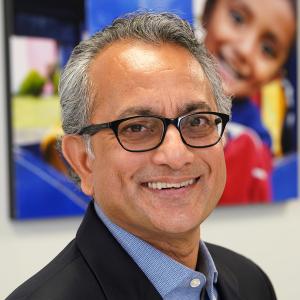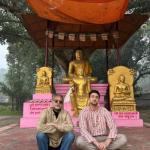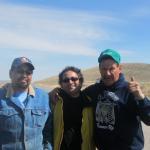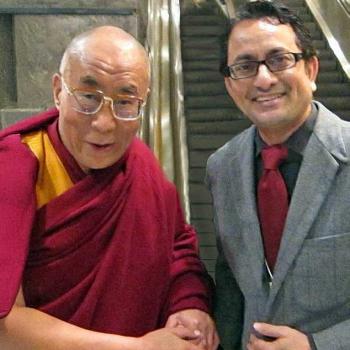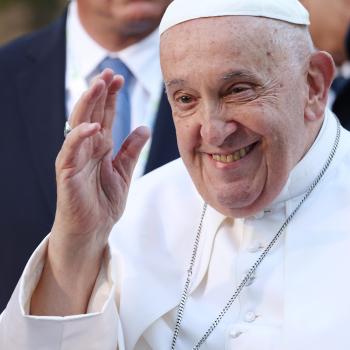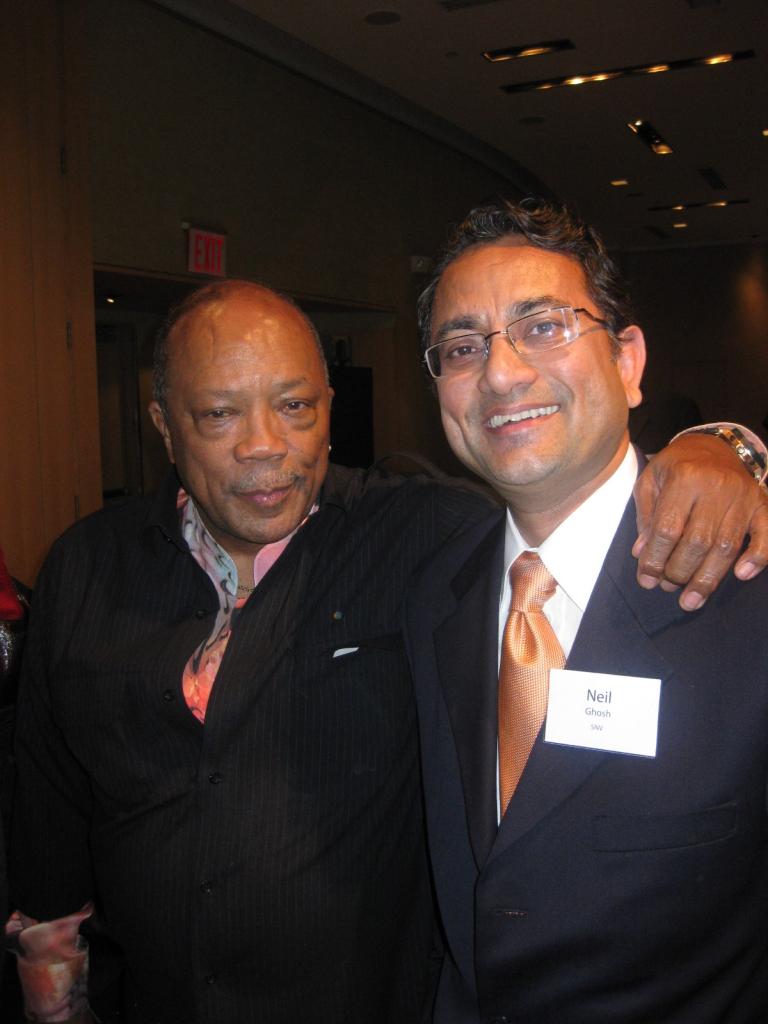
In the past few days, you’ve likely heard the song “Billie Jean” by Michael Jackson on the radio or TV—a fitting tribute to music legend Quincy Jones, who passed away Sunday night at the age of 91. Celebrated for his monumental contributions to music and entertainment, Jones was the mastermind behind Jackson’s iconic Thriller album (1982), organized the star-studded charity single We Are the World (1985), and produced the acclaimed film The Color Purple (1985), as well as the beloved TV series The Fresh Prince of Bel-Air (1990–96).
Yet, as impressive as his artistic legacy is, Jones’s true impact goes even further. Beyond his musical achievements, he was deeply committed to creating a more just and compassionate world, tirelessly working to do good, build bridges, and inspire others to follow suit.
More Than Music: Quincy’s Vision for a Just World
I was honored to meet Quincy Jones in New York when he was awarded the Global Citizen Award at the Clinton Global Initiative. His kindness and humility struck me. We exchanged a few words about SNV’s work in Africa, and he was an attentive listener. The award perfectly suited him, reflecting his unique character, diverse background, and global vision. As someone of African-American and European heritage, Jones consistently embraced projects with profound intercultural impact.
Quincy Jones might just be the world’s most influential musical artist. You may not know his name, but you’ve almost certainly heard his music. For over 70 years, Jones has written, produced, arranged, conducted, and performed music across genres—from jazz and pop to film scores—shaping the soundtracks of our lives. His collaborations span generations, from big band legends to hip-hop icons, earning him a staggering 28 Grammy Awards. Even if you know little about popular music, you likely recognize Michael Jackson’s Thriller, a monumental album produced by Jones.
Crafting Soundtracks and Building Bridges
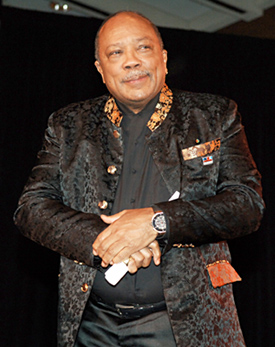 His work extends far beyond music. In 1985, he co-wrote and produced We Are the World, an all-star anthem that raised over $65 million to combat famine in Ethiopia. The project reinforced his lifelong belief in our interconnectedness and inspired his continued humanitarian efforts. Through the Quincy Jones Foundation, he has supported initiatives worldwide that promote children’s health, well-being, and empowerment, giving young people a voice and the tools to realize their potential. In 2004, he helped launch the We Are the Future (WAF) project, a partnership with the Global Forum, Quincy Jones Listen Up Foundation, and Mr. Hani Masri, with backing from the World Bank, UN agencies, and major corporations. The initiative aims to bring hope and opportunities to children in impoverished and conflict-ridden areas.
His work extends far beyond music. In 1985, he co-wrote and produced We Are the World, an all-star anthem that raised over $65 million to combat famine in Ethiopia. The project reinforced his lifelong belief in our interconnectedness and inspired his continued humanitarian efforts. Through the Quincy Jones Foundation, he has supported initiatives worldwide that promote children’s health, well-being, and empowerment, giving young people a voice and the tools to realize their potential. In 2004, he helped launch the We Are the Future (WAF) project, a partnership with the Global Forum, Quincy Jones Listen Up Foundation, and Mr. Hani Masri, with backing from the World Bank, UN agencies, and major corporations. The initiative aims to bring hope and opportunities to children in impoverished and conflict-ridden areas.
Jones’s contributions to humanitarian causes have not gone unnoticed. In 2009, he was honored by the United Nations for his dedication to fighting malaria through the One World Against Malaria Campaign. In 2007, Harvard University introduced the Q Prize, an international award in his name to recognize extraordinary advocacy for children’s welfare worldwide.
While Jones did not follow a specific faith he did credit God with helping him find direction. “Sometimes you need God to just slap you and say, ‘Let’s take a look and see what’s going on here.’” Jones told the Los Angeles Times in 1989.”
For Jones, art and activism are deeply intertwined. He founded the Quincy Jones Listen Up Foundation to connect underprivileged youth in Los Angeles and South Africa, fostering exchange through technology, education, culture, and music. The organization also helps build homes in South Africa, offering a tangible foundation for young lives. Jones’s vision is captured powerfully in his words:
“The pain of African Americans—who lost their homes, families, freedom, everything—has to go someplace. The pain went to the bottom of their souls and came out as music. The blues is pain translated to joy.”
In his career, Jones has shown how celebrities can amplify good causes. His involvement often attracts others, creating a ripple effect. That star power raises awareness, draws funding, and, eventually, the cause takes on a life of its own. Through it all, Quincy Jones remains in the background, orchestrating efforts with the same skill and sensitivity he brings to his music—ensuring every note and every initiative has maximum impact.
If you like this article please leave a comment below, I am interested in your thoughts on the brilliant Mr. Jones.


